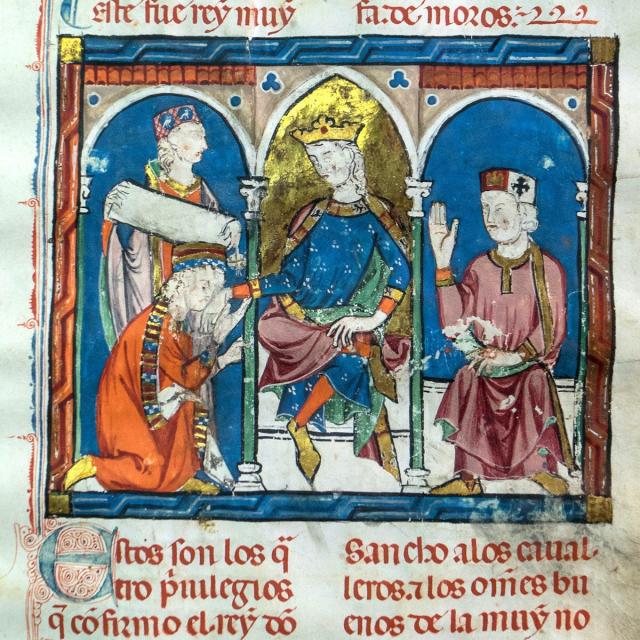MOOC List is learner-supported. When you buy through links on our site, we may earn an affiliate commission.

MOOC List is learner-supported. When you buy through links on our site, we may earn an affiliate commission.
We will virtually-tour the Islamic and Christian structures of the Museo de Santa Cruz, Iglesia de San Román, Sinagoga del Tránsito, Mezquita de Bab al-Mardum, Archivo Municipal de Toledo, and the Archivo Historico de la Nobleza.
We examine the Visigoths transition from Christian Arianism to Catholicism and the harsh treatment of the Jewish population. We explore Islamic governance and development of the medieval city of three faiths, with a special interest in its cultural achievements. We will study King Alfonso “The Wise” (1252-1284)’s efforts to characterize himself as the “king of three religions” via his legal codices, the creation of the Cantigas de Santa María, and his intellectual endeavor known as the Toledo School of Translators. We evaluate the robust Jewish and converso noble families of the city and appreciate their intellectual, religious, and economic contributions to Castilian life. We will bear witness to the rise of anti-Jewish blood purity statutes, the creation of the Inquisition, and the expulsion of the Jews. We also briefly introduce and study Spanish manuscripts from the municipal and cathedral archives to make new scholarly breakthroughs relating to the Jewish, Christian, and Muslim interrelations.
No knowledge of Spanish is needed to participate in the course or in our transcription efforts.
Syllabus
Week 1
Course Introduction and an Abbreviated History
We start with a course introduction and an abbreviated history of ancient and medieval roots of the city of Toledo. This includes an introduction to medieval Europe, the Byzantine Empire, and the Islamic word.. We also explore the Visigothic Kingdom that called the city of Toledo its capital.
Week 2
Jews, Christians, and Muslims in Medieval Toledo Until 1212 CE
This week we study Jews, Christians, and Muslims in Medieval Toledo until 1212 CE. We will witness the Islamic conquest of Visigothic Spain, the formation of Islamic al-Andalus, the birth of the Christian Reconquest, and Toledo under the Umayyads and as an independent taifa ("party kingdom"). We will also explore Islamic architecture at the Museo de Santa Cruz as well as other local sites.
Week 3
Jews, Christians, and Muslims in Medieval Toledo After 1212 CE
This week we study Jews, Christians, and Muslims in Medieval Toledo and in the broader Iberian Peninsula. We will evaluate the rule of Castilian King X "The Wise" and his legal codes and the Cantigas de Santa Maria. We will also visit the Museo Sefardi and consider how "cleanliness of blood" statutes impact recent converts to Christianity (conversos).
Week 4
Introduction to Archives and Paleography
This week we begin with two visits to archives in Toledo -- the Archivo Municipal de Toledo and the Archivo Historico de la Nobleza (formerly the Archivo Historico Nacional-Seccion Nobleza). Subsequently, our manuscript studies begin with 13th through 19th century paleography (learning to read older forms of handwriting.)
Introduction to Archives and Paleography: Lesson Choices
Week 5
The SILReST Paleography Method for 15th Century Manuscripts
This week we advance our paleographic training by studying and practicing using the SILReST Paleography Method for deciphering the most challenging manuscripts.
Week 6
The Global Team at Work: Transcription & Interpretation Project
During this class, not only will you be mastering your paleography skills, but we will also begin our work as Global Citizen Scholars as we, first, work collectively and, second, independently to transcribe a collection of medieval manuscripts pertaining to Jewish, Christian, and Muslim life in Toledo.
The Global Team at Work: Transcription & Interpretation Project: Lesson Choices
MOOC List is learner-supported. When you buy through links on our site, we may earn an affiliate commission.
MOOC List is learner-supported. When you buy through links on our site, we may earn an affiliate commission.
